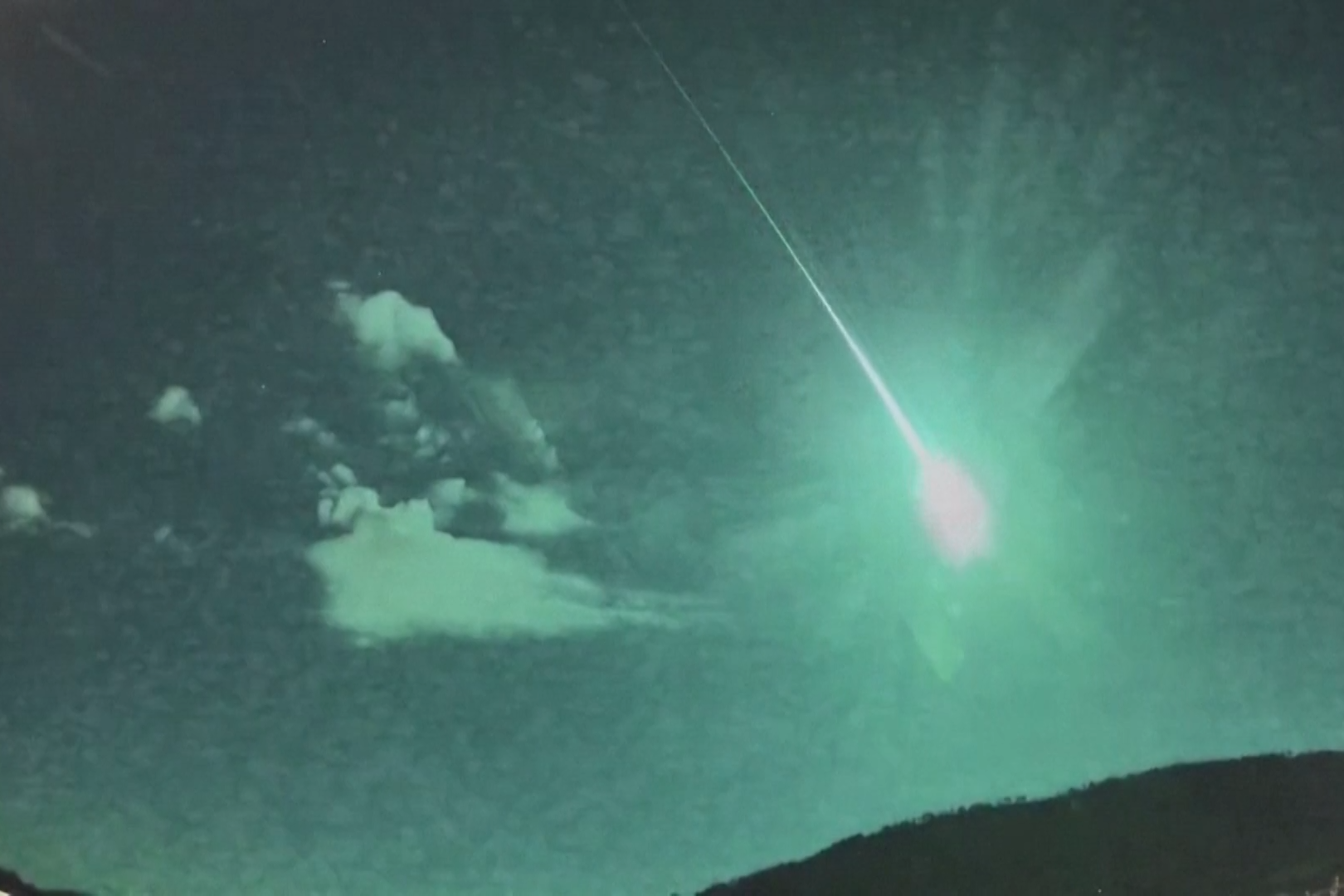A brilliant flash of blue, green and white on Saturday night came from a shard of an as yet unidentified comet that was moving around 100,000 miles per hour, experts said.

On Saturday, revelers across Spain and Portugal ventured into the temperate springtime evening, hoping for a memorable night. None were expecting a visitor from outer space exploding above their heads.
At 11:46 p.m. in Portugal, a fireball streaked across the sky, leaving a smoldering trail of incandescent graffiti in its wake. Footage shared on social media shows jaws dropping as the dark night briefly turns into day, blazing in shades of snowy white, otherworldly green and arctic blue.
Rocky asteroids cause sky-high streaks as they self-destruct in Earth’s atmosphere with some frequency. But over the weekend, the projectile was plunging toward Earth at a remarkable speed — around 100,000 miles per hour, more than twice that expected by a typical asteroid. Experts say it had a strange trajectory, not matching the sort normally taken by nearby space rocks.
That’s because the interloper wasn’t an asteroid. It was a fragment of a comet — an icy object that may have formed at the dawn of the solar system — that lost its battle with our planet’s atmosphere 37 miles above the Atlantic Ocean. None of the object is likely to have made it to the ground, the European Space Agency said.
“It’s an unexpected interplanetary fireworks show,” said Meg Schwamb, a planetary astronomer at Queen’s University Belfast.
It is not rare for comets to create shooting stars. “We have notable meteor showers throughout the year, which are the result of the Earth crossing debris clouds of specific comets,” Dr. Schwamb said. For example, the Perseids, which occur every August, are the result of our world’s sweeping through litter left behind by Comet Swift-Tuttle.
We are having trouble retrieving the article content.
Please enable JavaScript in your browser settings.
Thank you for your patience while we verify access. If you are in Reader mode please exit and log into your Times account, or subscribe for all of The Times.
Thank you for your patience while we verify access.
Already a subscriber? Log in.
Want all of The Times? Subscribe.
